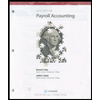If the client is not an employee, but works for himself or in partnership with others, or is an employee with one organization but also has additional sources of earned income, it is important to discover details of the business itself and the history of the non-employment income source(s) in order to assess the viability and consistency of the business income stream. Listed below are a number of statements relating to business income: 1. In the case of an employee, disability income replacement insurance coverage is generally based on a percentage of pre-tax income. 2. In the case of the self-employed, it is based on pre-tax but after-expense (net) income. 3. In the case of a self-employed client, it is not necessary to take business expenses into consideration. 4. If the business has substantial fixed overhead a separate business overhead expense (BOE) policy may be needed 5. A consultant working from home may only incur expenses while he is working and not require business overhead expense insurance. 6. A consultant working from outside the home may have expenses that need to be covered under business overhead expense insurance. Which of the above statements are correct? Select one: a 3,4,5&6 b. 1,2,3 & 4 C 2,3,4&6 d. They are all correct
If the client is not an employee, but works for himself or in partnership with others, or is an employee with one organization but also has additional sources of earned income, it is important to discover details of the business itself and the history of the non-employment income source(s) in order to assess the viability and consistency of the business income stream. Listed below are a number of statements relating to business income: 1. In the case of an employee, disability income replacement insurance coverage is generally based on a percentage of pre-tax income. 2. In the case of the self-employed, it is based on pre-tax but after-expense (net) income. 3. In the case of a self-employed client, it is not necessary to take business expenses into consideration. 4. If the business has substantial fixed overhead a separate business overhead expense (BOE) policy may be needed 5. A consultant working from home may only incur expenses while he is working and not require business overhead expense insurance. 6. A consultant working from outside the home may have expenses that need to be covered under business overhead expense insurance. Which of the above statements are correct? Select one: a 3,4,5&6 b. 1,2,3 & 4 C 2,3,4&6 d. They are all correct
SWFT Essntl Tax Individ/Bus Entities 2020
23rd Edition
ISBN:9780357391266
Author:Nellen
Publisher:Nellen
Chapter11: Individuals As Employees And Proprietors
Section: Chapter Questions
Problem 4BCRQ
Related questions
Question

Transcribed Image Text:If the client is not an employee, but works for himself or in partnership with others, or is an employee with one
organization but also has additional sources of earned income, it is important to discover details of the business itself
and the history of the non-employment income source(s) in order to assess the viability and consistency of the business
income stream. Listed below are a number of statements relating to business income:
1. In the case of an employee, disability income replacement insurance coverage is generally based on a percentage
of pre-tax income.
2. In the case of the self-employed, it is based on pre-tax but after-expense (net) income.
3. In the case of a self-employed client, it is not necessary to take business expenses into consideration.
4. If the business has substantial fixed overhead a separate business overhead expense (BOE) policy may be needed
5. A consultant working from home may only incur expenses while he is working and not require business overhead
expense insurance.
6. A consultant working from outside the home may have expenses that need to be covered under business overhead
expense insurance.
Which of the above statements are correct?
Select one:
a
3,4,5&6
b.
1,2,3 & 4
C
2,3,4&6
d.
They are all correct
Expert Solution
This question has been solved!
Explore an expertly crafted, step-by-step solution for a thorough understanding of key concepts.
Step by step
Solved in 3 steps

Knowledge Booster
Learn more about
Need a deep-dive on the concept behind this application? Look no further. Learn more about this topic, finance and related others by exploring similar questions and additional content below.Recommended textbooks for you







Individual Income Taxes
Accounting
ISBN:
9780357109731
Author:
Hoffman
Publisher:
CENGAGE LEARNING - CONSIGNMENT


College Accounting (Book Only): A Career Approach
Accounting
ISBN:
9781337280570
Author:
Scott, Cathy J.
Publisher:
South-Western College Pub